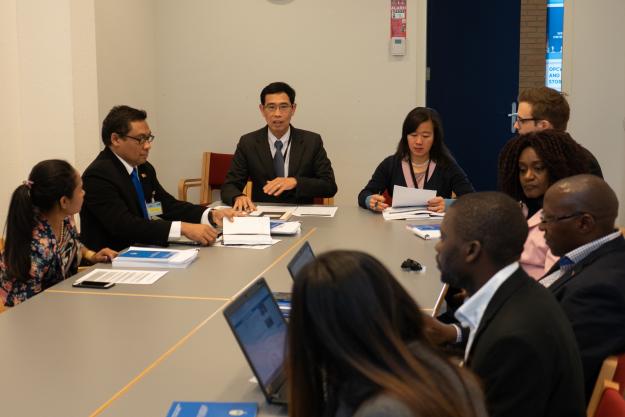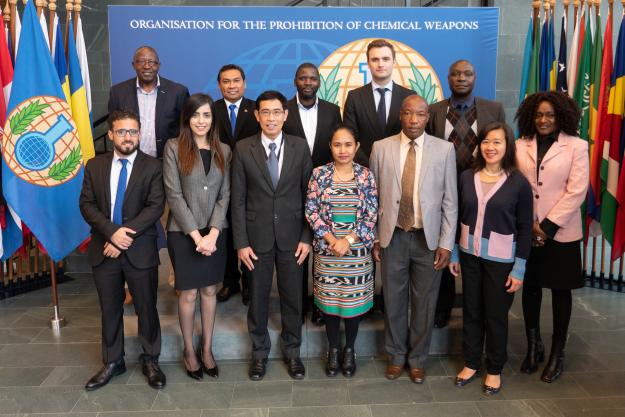
THE HAGUE, Netherlands – 5 November 2018 – Representatives from the Kingdom of Eswatini, the State of Palestine, the Democratic Republic of Timor-Leste and the Republic of Zimbabwe have developed their legal expertise to draft the national legislation required to enact the Chemical Weapons Convention (CWC), after having participated in the 20th session of the Internship Programme for Legal Drafters and National Authority Representatives in The Hague, from 29 October-2 November.
The Internship Programme, conducted by the Technical Secretariat of the Organisation for the Prohibition of Chemical Weapons (OPCW), included presentations on legal issues related to national implementation of the CWC, inspections, declarations, and the importance of national implementing legislation in addressing emerging challenges, particularly the threat of chemical terrorism.
At the end of the programme, each national delegation produced a draft text of its implementing legislation, as well as an Action Plan for the adoption process of the draft laws. The plan includes follow up actions and an indicative timeline, which will serve as references for the Technical Secretariat to follow up on the adoption process.
Through the programme, the participants worked closely with the Technical Secretariat and shared knowledge and experience with other OPCW Member States in similar stages of the implementation process in order to align best practices.

Participants at the Internship Programme for Legal Drafters and National Authority Representatives
Background
The Internship Programme for Legal Drafters and National Authority Representatives is a one week legal workshop where participants are equipped with the technical capacity and requisite skills to complete a draft of national implementing legislation and to pursue its adoption when they return to their home country.
Since its inception in 2012, 40 OPCW Member States have participated in this Programme. Among these, Cape Verde, Grenada, Panama, Paraguay, Uganda and Lao People’s Democratic Republic have successfully enacted national legislation, while others are at various stages of the adoption process.
As the implementing body for the Chemical Weapons Convention, the OPCW, with its 193 Member States, oversees the global endeavour to permanently eliminate chemical weapons. Since the Convention’s entry into force in 1997, it is the most successful disarmament treaty eliminating an entire class of weapons of mass destruction.
Over 96% of all chemical weapon stockpiles declared by possessor States have been destroyed under OPCW verification. For its extensive efforts in eliminating chemical weapons, the OPCW received the 2013 Nobel Peace Prize.
